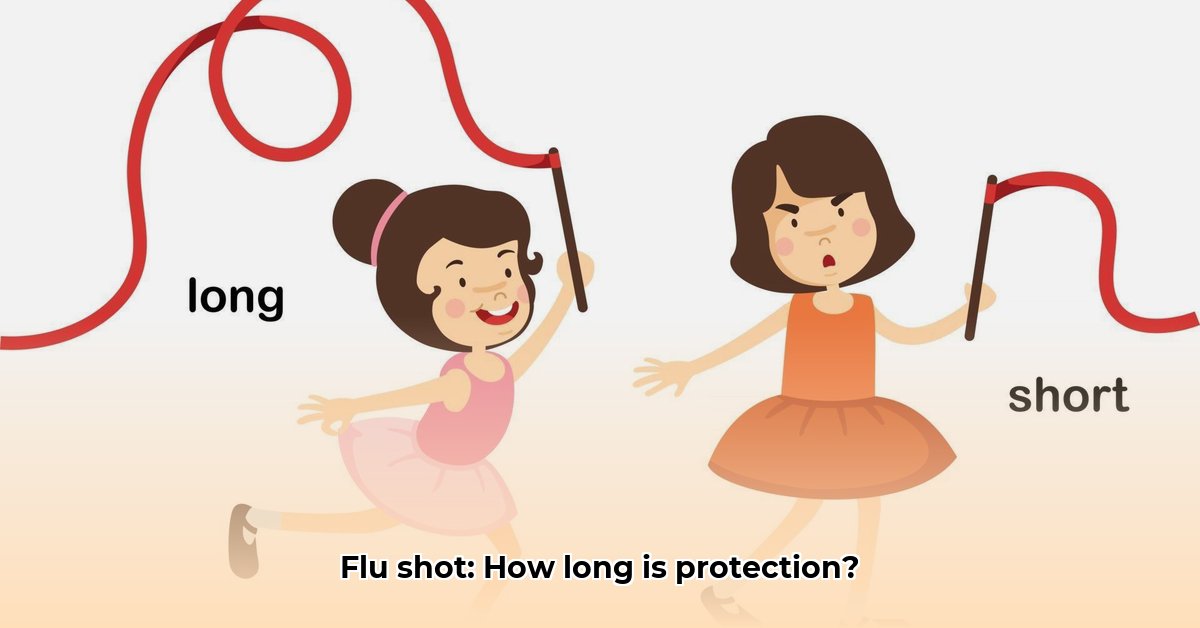
Jislaaik, flu season is kwaai, hey? Getting the flu can really knock you sideways, so it's natural to wonder how long your flu jab will keep you protected. This article gives you the full picture on how long your flu vaccine's protection lasts, how to maximise its effectiveness, and who should get vaccinated.
Understanding Your Flu Shot's Defence
Think of the flu vaccine as a shield against the flu virus. It’s not a permanent fortress, but a strong defence that gradually weakens over time. How long that protection lasts depends on several factors:
- The Evolving Virus: The flu virus is a sneaky thing, constantly changing (mutating). A good match between the vaccine and circulating viruses means stronger, longer-lasting protection. A poor match means weaker, shorter-lived protection.
- Your Body's Response: Your immune system plays a crucial role. Older people and those with weaker immune systems may find their protection fades faster. Younger children might need two doses to build sufficient immunity.
- Timing Matters: Getting vaccinated earlier in the flu season, ideally before late October, is key for maximum protection throughout the season.
The Protection Timetable: How Long is "Long Enough"?
Studies show the flu vaccine is most effective shortly after vaccination – usually within the first six months. You’ll likely have some protection after that, but it’ll likely be less potent. Doctors recommend an annual jab because protection varies from person to person and isn't permanent. There's no single magic number.
Getting the Most Out of Your Flu Jab
Here's how to maximize your flu shot's effectiveness:
- Perfect Timing: Get vaccinated before flu season starts – ideally by the end of October. This gives your body a head start.
- High-Dose for Seniors: If you're 65 or older, ask your doctor about a high-dose flu vaccine for a stronger immune response.
- Healthy Habits: A healthy lifestyle, including a balanced diet, regular exercise, and sufficient sleep, supports a strong immune system.
- Doctor's Consultation: Talk to your doctor before getting the flu shot if you have any health concerns or allergies. They can advise on the best course of action.
Who Should Get the Flu Vaccine?
The flu shot isn't just for ouma and oupa. It's recommended for almost everyone six months and older. Protecting yourself also protects others, especially vulnerable people who can't be vaccinated.
What About Side Effects?
Most side effects are mild and short-lived – a sore arm or perhaps a slight fever. Serious side effects are rare.
Weighing It Up: Pros and Cons of the Flu Vaccine
| Advantages | Disadvantages |
|---|---|
| Significantly reduces your chances of getting the flu | Doesn't guarantee 100% protection; annual vaccination needed |
| Lessens flu severity if you do catch it | Protection levels vary depending on circulating flu strains |
| Protects the community | Some mild side effects are possible |
How Long Does High-Dose Flu Vaccine Immunity Last in Elderly Individuals?
Many seniors wonder, "How long does high-dose flu vaccine immunity last?" A high-dose or adjuvanted vaccine is often recommended for those aged 65 and older because it triggers a stronger immune response. While protection isn't permanent, it typically lasts throughout flu season, offering significant protection against severe illness. Yearly vaccination remains crucial.
"Annual flu shots are vital for seniors," says Dr. Nomusa Dlamini, Infectious Disease Specialist at Chris Hani Baragwanath Hospital. "High-dose vaccines offer better protection than standard doses, but immunity does wane. Yearly vaccination is essential."
Timing and Additional Protection
Getting your flu shot before flu season peaks—ideally before late October—is key. Consider a pneumococcal vaccine alongside or after your flu shot for broader respiratory protection.
Actionable Steps for Maximum Protection:
- Consult your doctor: Discuss your health needs and vaccination options.
- Get vaccinated annually: Schedule your shot by late October.
- Practice good hygiene: Wash your hands, avoid touching your face, and cover coughs/sneezes.
- Maintain a healthy lifestyle: Eat well, rest sufficiently, and exercise regularly.
Remember, vaccination is your best defence against the flu. Don't delay; protect yourself and your community!